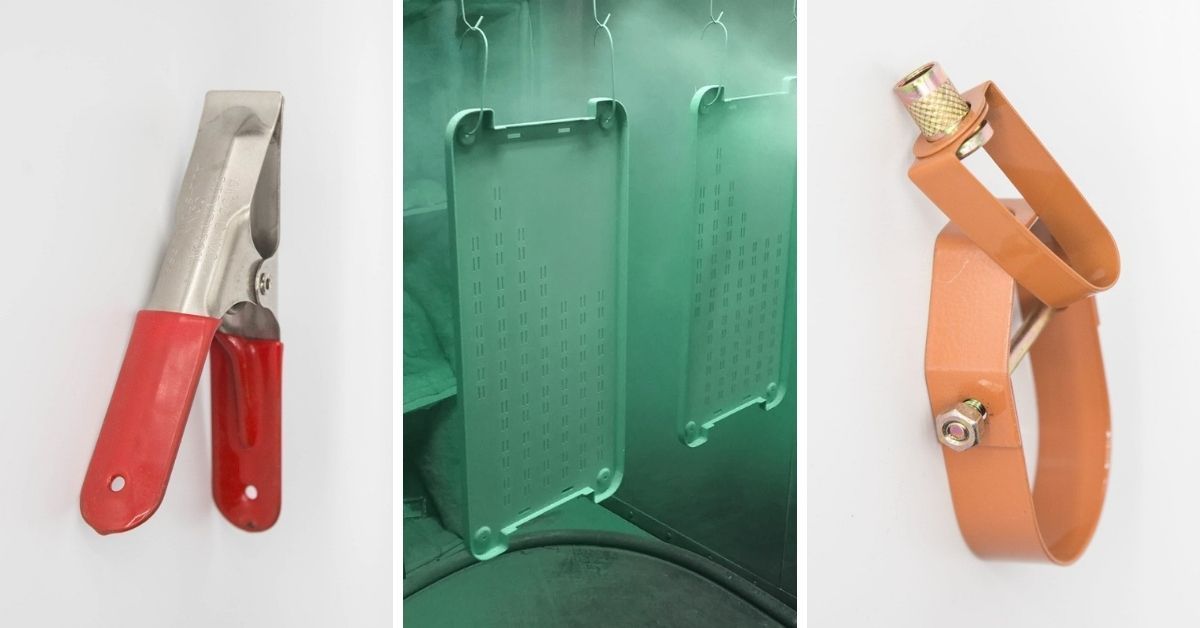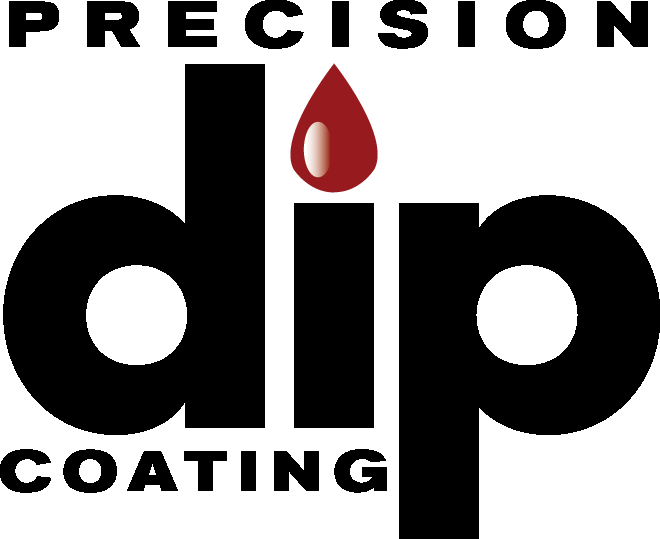From Thick to Thin: Industrial Coating Methods

When planning a plastic coating for a project, the thickness of that coating is a critical detail. Coating thickness can vary depending on plastic formulation, additives, technique used, and other details of the process and item being coated. While consultation with our expert team is the best way to guarantee the results you want, here are some details about different coating results for industrial applications.
Thick Plastic Coatings
The thickest coatings are achieved by dipping parts in plasticized, liquid vinyl, aka plastisol. These thick coatings are especially useful where its characteristic rubbery consistency can insulate, protect, reduce noise, deaden vibrations, and more. Hot dip coatings are typically .040"-.250" thick, with thinner coatings on parts that are preheated to higher temperatures. Cold dip coatings, where parts are not preheated, use repeated dips to build to a desired thickness.
Moderately Thick Plastic Coatings
A fluidized bed technique can be used for coatings that are thinner than plastisol, but thicker than typically created with spray coating. This method submerges preheated parts in charged coating powder. Heat curing permanently fuses the coating. These coatings range from .007"-.025", and may smooth over small imperfections and small details, such as serial numbers. Fluidized bed coatings are especially useful when parts have geometries that can create a Faraday effect for spray coating, causing an electromagnetic disturbance, preventing full coverage in corners and other close areas. Suitable coatings for the fluidized bed technique include epoxy, nylon, vinyl, polyethylene, polyolefin, and polyester.
Thin Film Plastic Coatings
The thinnest plastic coatings are usually generated by electrostatic spray, resulting in coatings between .001"-.010", though thicker coatings, up to .030", can also be achieved. Coating materials suitable for the electrostatic spray technique include epoxy, Halar, nylon, polyester, polyethylene, and polyolefin.
At Precision Dip Coating, our goal is to partner with you, so your project has the ideal coating material and technique.
Contact us today for an expert consultation.






